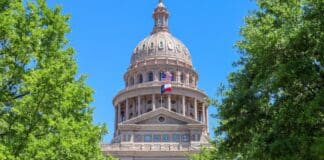Two Jewish graduate students at Cornell University filed a federal discrimination complaint, asserting their union rights were violated under Title VII. The suit targets the Cornell Graduate Student Union (CGSU) and United Electrical, Radio and Machine Workers of America (UE) over their controversial handling of religious accommodations.
Louie Gold and David Rubinstein, represented by the National Right to Work Legal Defense Foundation, argued the unions interrogated their religious beliefs after they requested to redirect dues to charity instead of the union—allowed under federal law for religious objectors. The complaint notes the union sent questionnaires demanding details about religious leaders, places of worship, and how long the beliefs had been held.
The students contend the questioning was unnecessary and politically motivated. The complaint accuses the unions of aligning with anti‑Israel activism, inflaming tensions on campus. It claims they effectively punished Jewish students for refusing to support groups allegedly hostile to Israel and supportive of Hamas.
Cornell’s contract, effective March 19, includes a “modified agency shop.” Graduate workers who oppose union affiliation on moral or religious grounds may instead donate dues amounts to pre‑approved charities like the American Cancer Society. Gold and Rubinstein say their religious faith prevents them from funding organizations perceived as opposing Israel’s existence, and they filed letters asserting this conviction as early as June 2.
The complaint notes New York’s status as a non–“Right to Work” state allows agency fees but does not override the religious exemption guaranteed by Title VII.
This case follows a similar instance at MIT in 2024 where Jewish graduate students secured accommodations from UE. But Gold and Rubinstein state Cornell’s unions didn’t fully implement those protections, prompting federal intervention.
University officials reportedly emailed union leadership on June 2, warning they hadn’t yet enabled religious exemptions in practice.
The union has not responded to comment requests. The outcome at Cornell may have wider implications for Title VII protections for religious objectors in academia and the boundary between union influence and individual conscience.





